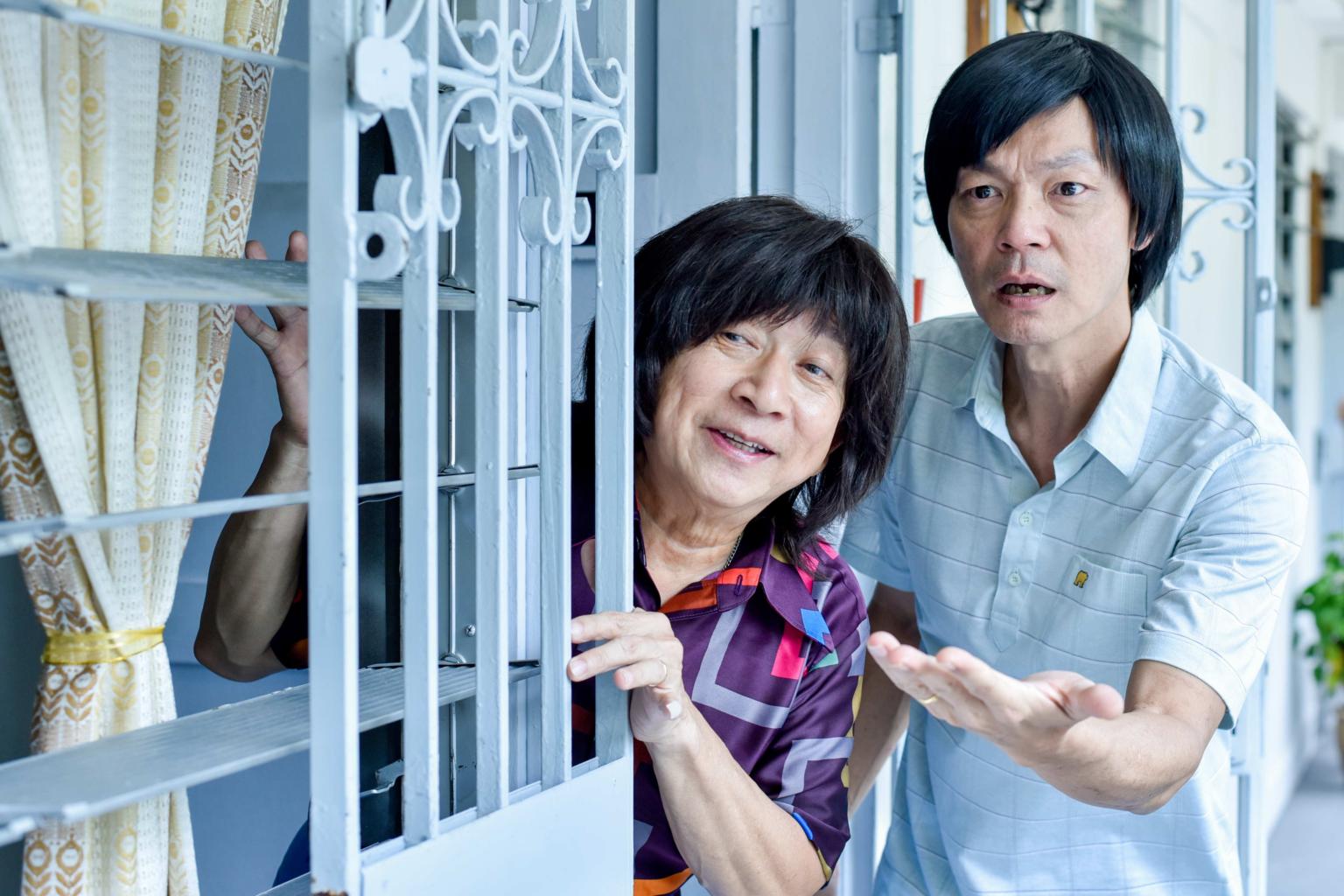The Diam Diam Era looks back at a time of change in education, says Jack Neo
Sign up now: Get ST's newsletters delivered to your inbox

Two-part movie The Diam Diam Era opens in cinemas on Nov 26, with the second released during the Chinese New Year period next year.
PHOTO: MM2 ENTERTAINMENT
Follow topic:
SINGAPORE - In the 1980s, Singapore's education system went through an upheaval. In line with government policy, English would be taught as the first language.
Film-maker Jack Neo, 60, was in Secondary 3 when the policy took effect at his school, where Chinese was the language of instruction.
The change was traumatic, he recalls. "Suddenly, all our books were in English. Wah!" he tells The Straits Times.
Subjects like mathematics became difficult. "Not because we didn't know the answers, but because we didn't understand the questions," he says.
The young Neo, along with many others, sought English-language coaching outside school hours.
He was speaking last week at a press conference for his two-part comedy-drama The Diam Diam Era. The first part opens in cinemas on Thursday (Nov 26), while the second will be released during the Chinese New Year period next year.
It is the follow-up to the two-part Long Long Time Ago films, both released in 2016 and which tells the story of the Lim family from 1965 to the early 1970s.
The word "diam", which in Malay means "shut up" and is also used in Singapore Hokkien, refers to how folks such as the Lims, who represent the average Singaporean family of the time, were buffeted by policies but felt they could not speak out.
In the first two films, the Lims are shown moving out of their kampong home into a flat and adapting to policies such as national service.
Neo's new film touches on social issues arising in the 1980s. It was a time that many among the Chinese-educated felt their language had been devalued and its speakers discriminated against.
In the movie, the term 'Chinese helicopter' is used to mock Chinese who speak English poorly or with a heavy accent. It is used on the secondary school student played by actor Richie Koh, a younger member of the Lim family, and follows him into national service, where he is seen as a soldier of inferior quality.
Neo explains: "Our pronunciation was different, which made 'Chinese-educated' sound like 'Chinese helicopter',"
The merger of the Chinese-language Nanyang University with the University of Singapore in 1980 to form the National University of Singapore, is also addressed in the film.
The language policies, among other issues, took citizens like Ah Kun, a Chinese-educated taxi driver played by actor and comedian Mark Lee, to a crossroad.
"You had to either change and learn English, or you made noise like Ah Kun," Neo says, adding that the outcome of Ah Kun's activism will be revealed only in the second part of the film next year.
Lee, 52, who was in Taiwan for the Golden Horse Awards where he was nominated for Best Leading Actor for the musical comedy Number 1, teleconferenced into the press event and later replied to questions from ST via email.
His character Ah Kun might be abrasive, but he has a good heart, he says. "He only cares about the present and not the future. It is why the taxi driver tends to fight any change of policy - in education or road usage.
Actress Yap Hui Xin, 29, who plays one of the three Lim sisters, says the issues raised in the film are still raw for those who lived through it.
She spoke of her parents who experienced the disruption at their Chinese-medium school. "They are still a little upset by it," she says.
It was the same for the parents of actress Regina Lim, 24, who plays another Lim sister. "It was a hard adjustment for them to switch to English," she says.
In the movie, a disgruntled Ah Kun forms a political party, but is dismayed to find that under the group representation constituency (GRC) scheme, which came into effect in 1988, he has to recruit friends Osman (played by comedian and actor Suhaimi Yusof) and Shamugen (actor Silvarajoo Prakasam) into his team.
Suhaimi, 51, spoke of how his point of view as a Malay, and that of Silvarajoo as an Indian, were incorporated into the film on the fly, as is typical of Neo's method.
In one scene, Ah Kun complains about how the GRC system is unfair to independent candidates like him. Instead of agreeing, Osman pushes back, telling him that not everyone thinks it is a bad idea.
The inflexion point in the scene could not have happened without input from Suhaimi and Silvarajoo. It was why the scene took a whole day to shoot, Suhaimi says.
"The GRC issue is a sensitive one. We were not just shooting a scene. We also exchanged information - so many of our thoughts went into it,"he adds.
The Diam Diam Era (PG13, 107 minutes) opens in cinemas on Nov 26.

